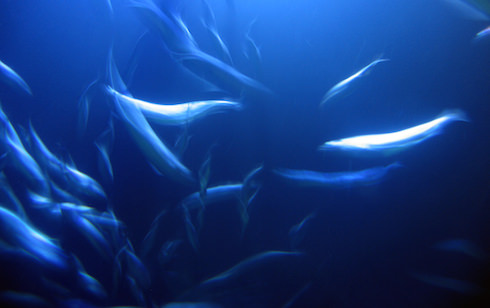 We are inspired by faith, but our actions are most effective if they are based in science.
We are inspired by faith, but our actions are most effective if they are based in science.
Watching The Human Planet recently on the ABC, I was amazed by two of the narrator's comments.
The first was the statement that oceans cover approximately 70 per cent of the Earth's surface. It's not something I'd ever thought about before. My sense of the expansiveness of oceans comes from flights to Central America, where, seen from the plane window, the Pacific Ocean is like a vast canvas of blue. But I'd never realised just how immense oceans are.
The second piece of the narration which caught my attention was a prediction: that based on current trends, there may be few fish left in the ocean in a few generations time. I could hardly believe what I was hearing. How could that be?
Long after the program finished, I began wondering about those two pieces of information, intertwining them and reflecting: on the 2010 oil spill in the Mexican Gulf, and its aftermath; how the radioactivity from the stricken nuclear power plants in Japan is affecting the surrounding ocean; and the mounting evidence that increasing ocean acidification-a result of increased levels of carbon dioxide- could destroy the Great Barrier Reef and many other reefs around the world within the next 50 or so years.
I also think about the breadth of the growing global ecological crisis; how much larger it is than the state of our oceans and the reefs and fish that inhabit them. How deforestation, desertification, pollution and loss of biodiversity are also major issues.
My reflections take me back to a theology lecture at The University of Central America in El Salvador, where Jesuit Theologian Fr Gonzalez Faus spoke, in the early 1990s, about the creation story in Genesis: that 'dominion' over the Earth does not mean 'subduing' it, but rather being 'caretakers' of it; that we all have a responsibility to look after God's creation-to sustain it. And Gonzalez Faus was not a lone voice.
Pope John Paul ll was emphatic that Catholics need to not only be aware of, but live out their 'ecological vocation'. The pontiff said that, 'Responding to this sacred task with a sense of humility requires for many of us a candid examination of lifestyle choices, a realization that creation is sacred and endangered, and a radical change of heart-an "ecological conversion"'.
In his World Day of Peace Message in 2010, Pope Benedict XV1 stated: 'The environment must be seen as God's gift to all people, and the use we make of it entails a shared responsibility for all humanity, especially the poor and future generations.'
He went on: 'Sad to say, it is all too evident that large numbers of people in different countries are experiencing increased hardship because of the negligence or refusal of others to exercise responsible stewardship over the environment.'
In view of this, what is our role? To become aware, to be inspired, to decide what we might be able to do. Then in whatever capacity we have- as students, teachers, policy makers, scientists, professionals, tradespeople, politicians, workers or carers-to act.
One initiative by the Bishops' Commission for Justice and Peace was to establish the advisory agency, Catholic Earthcare Australia. It's website, www. catholicearthcare.org.au, provides information, educational resources- including a personal ecological calculator, newsletters, podcasts, church documents and reflections. Catholic Earthcare Australia also has information to assist carrying out environmental audits. It is one of many organisations that encourage not only education and networking, but action.